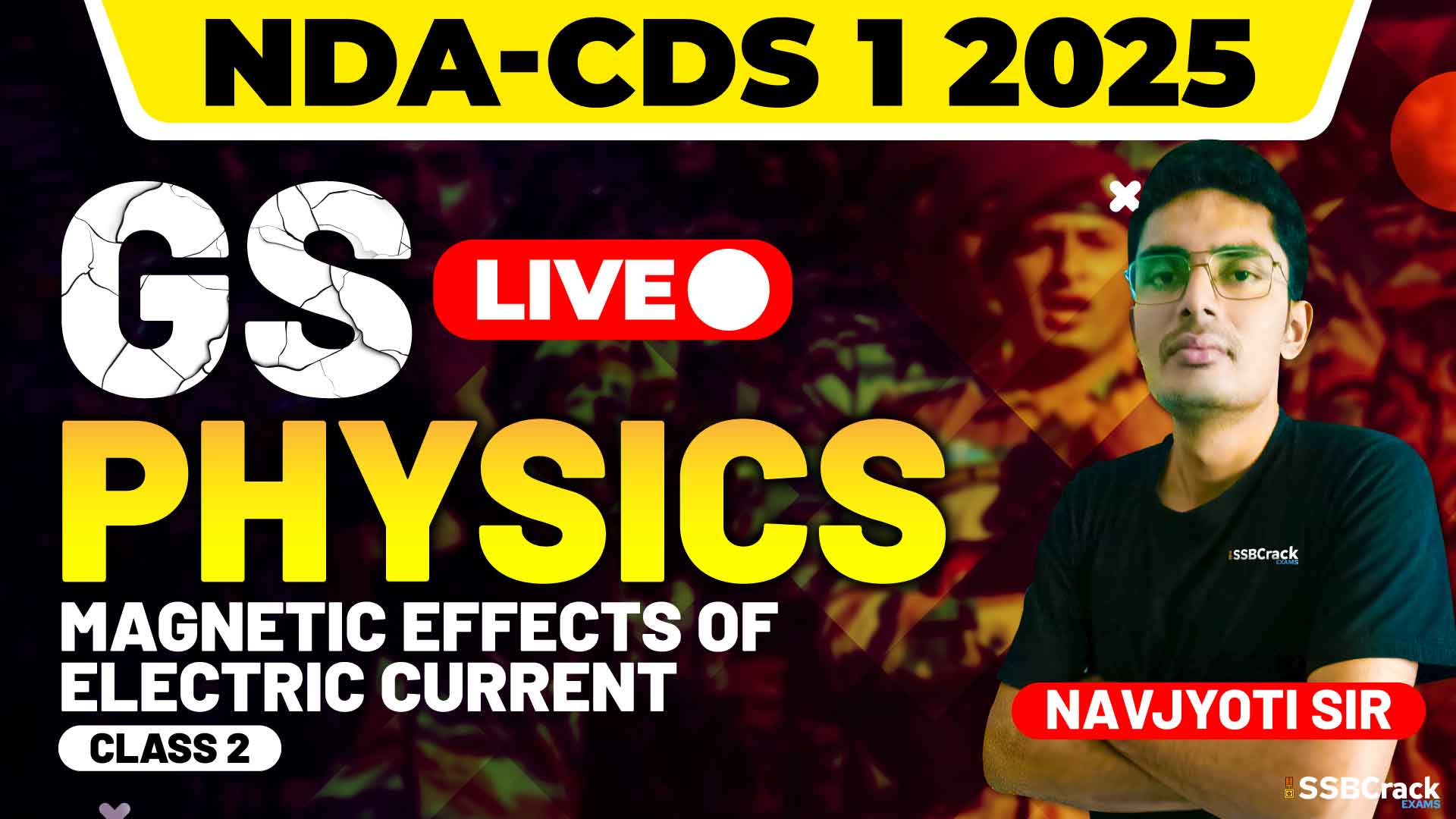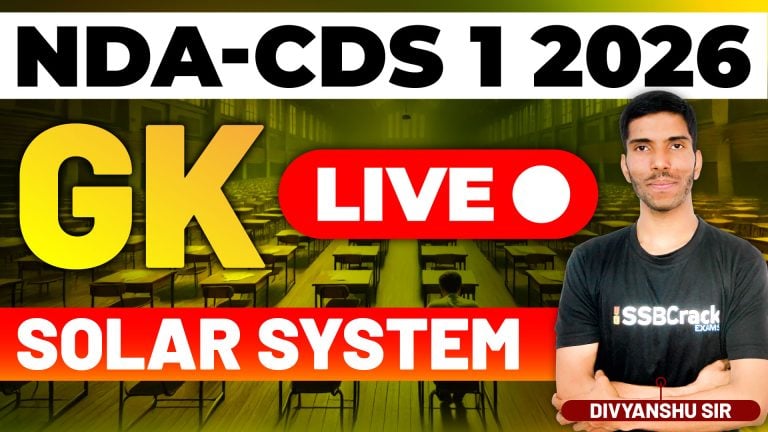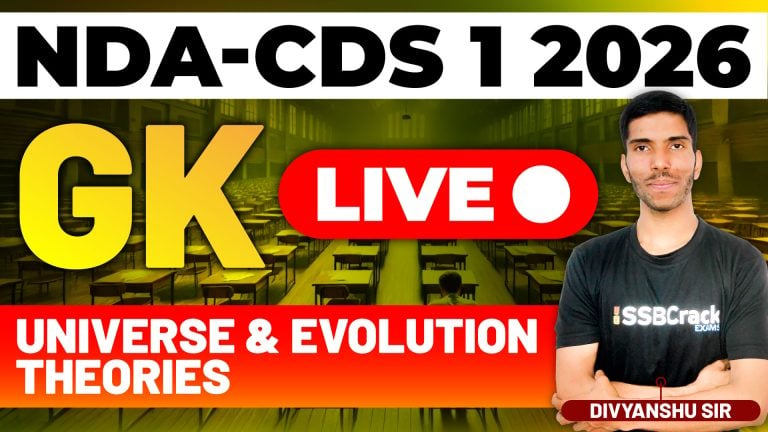The Physics section of competitive exams such as the National Defence Academy and Naval Academy (NDA-NA) Exam and the Combined Defence Services (CDS) Exam plays a crucial role in determining a candidate’s performance. Among its diverse topics, Magnetic Effects of Electric Current is a key concept tested in Paper II of the NDA-NA exam and the General Knowledge (GK) paper of the CDS exam.
A recent class dedicated to this topic focused on practicing Multiple-Choice Questions (MCQs) from previous years’ papers and anticipated questions. The session aimed to enhance students’ problem-solving skills and boost their confidence for tackling questions in upcoming exams.
Highlights of the Class
The class was a rigorous practice session designed to reinforce understanding and provide exposure to exam-style questions. It focused on MCQs from subtopics of Magnetic Effects of Electric Current, which had been discussed in prior lessons. Here’s a breakdown of the session:
1. Reviewing Key Subtopics
Before delving into MCQs, the instructor briefly recapped the essential subtopics:
- Magnets and Magnetism: Properties of magnets, magnetic poles, and their interaction with each other.
- Magnetic Field Lines: Characteristics, direction, and visualization of magnetic fields.
- Magnetic Field Due to Current-Carrying Conductors: Behavior of magnetic fields in straight wires, circular loops, and solenoids.
- Force in Magnetic Fields: The effect of magnetic fields on moving charges and current-carrying conductors.
- Electromagnetic Induction: The principles of induced currents and their applications in generators and transformers.
2. Solving MCQs
- The class primarily revolved around solving MCQs, categorized into two groups:
- Previous Years’ Questions: These questions helped students familiarize themselves with recurring patterns and important concepts.
- Expected Questions: Designed to challenge students, these were based on current trends and potential topics for future exams.
- Each question was followed by detailed discussions. The instructor explained not only the correct answers but also the reasoning behind them, ensuring conceptual clarity.
3. Application-Based Approach
- Many questions emphasized practical applications, such as the working of electric motors, transformers, and electromagnetic devices.
- Diagrams and visual aids were used to help students understand magnetic field patterns and their implications.
4. Time Management Techniques
- The instructor demonstrated strategies for solving questions quickly and accurately, a critical skill for competitive exams.
- Students were encouraged to identify straightforward questions and tackle them first, saving time for more complex ones.
Strategies to Prepare for Magnetic Effects of Electric Current
Success in exams like NDA-NA and CDS depends on a strong grasp of concepts and consistent practice. Here are some strategies to help you prepare effectively for this topic:
1. Understand the Basics Thoroughly
- Begin with the foundational principles of magnets, magnetic fields, and their interaction with electric currents.
- Use diagrams to visualize magnetic field lines and understand their properties.
2. Focus on Core Topics
- Prioritize topics frequently tested in exams, such as:
- Magnetic fields due to straight wires, loops, and solenoids.
- The concept of forces on charges and conductors in magnetic fields.
- Electromagnetic induction and its applications.
3. Practice Previous Years’ Questions
- Solving past exam questions gives you a clear idea of the type and difficulty of questions asked.
- Identify patterns in recurring concepts and focus on strengthening these areas.
4. Solve Mock Tests
- Regularly attempt mock tests to simulate exam conditions and improve time management.
- Analyze your performance to identify weak areas and refine your strategies.
5. Use Visual Aids
- Practice drawing diagrams of magnetic field patterns around conductors, loops, and solenoids.
- These visualizations help in answering diagram-based questions and understanding theoretical concepts better.
6. Connect Theory to Applications
- Study real-world applications, such as electric motors, transformers, and generators. These examples are often the basis of application-based questions.
7. Time Management
- Practice solving MCQs within a set time limit to enhance speed and accuracy.
- Learn to identify and prioritize easier questions, leaving time for complex ones.
8. Revise Regularly
- Create concise notes summarizing each subtopic and revise them frequently.
- Highlight key concepts, definitions, and examples for quick reference.
9. Seek Clarification
- Address any doubts immediately by referring to textbooks, online resources, or instructors.
- Peer discussions can also provide valuable insights and alternative approaches.
10. Stay Consistent
- Dedicate regular study hours to Physics, ensuring you cover all subtopics systematically.
- Consistency in preparation ensures steady progress and builds confidence.
Key Takeaways from the Class
The recent class emphasized the importance of practice and conceptual clarity in mastering Magnetic Effects of Electric Current. By solving a mix of previous years’ and expected MCQs, students gained:
- Familiarity with the exam pattern.
- Enhanced problem-solving skills.
- Confidence in tackling application-based and conceptual questions.
The session also highlighted the significance of time management and strategic preparation, essential for scoring well in competitive exams.
Conclusion
Magnetic Effects of Electric Current is a crucial topic in the Physics syllabus for NDA-NA and CDS exams. The recent class on MCQ practice provided students with a structured approach to mastering this topic. With consistent practice, a focus on core concepts, and effective time management, students can excel in this area and significantly boost their overall Physics score.
In your journey to success, remember that perseverance and a clear strategy are key. Focus on understanding concepts, applying them to problems, and revising regularly. With dedication and effort, you’ll be well-prepared to ace the exams. Best of luck!







